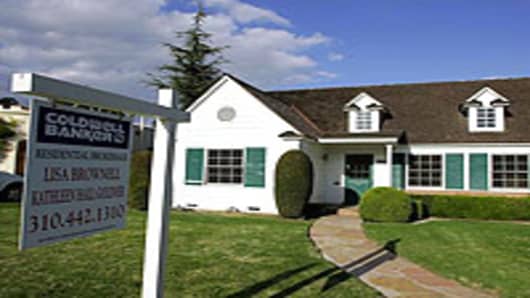Don't be fooled by the little uptick in home prices in today's Existing Home Sales reportfrom the National Association of Realtors.
That was the message from the Realtors themselves!
Even the always glass-is-half-full chief economist Lawrence Yun made clear several times in the briefing before the report's release, that he expects home prices to come under significant pressure over the coming months, as inventories rise.
The report today showed inventories up 2.5 percent to 3.99 million units. At the current sales pace, that represents an 8.9 month supply. The current sales pace ticked down 5 percent in June, even though those numbers are still under the sway of the home buyer tax credit (remember, EHS represent closings in June, so contracts likely signed in April before the credit expired).
But more importantly, the Pending Home Sales Index, which represents contracts signed, fell off a cliff in May, down 30 percent, indicating that closings will be way off as well.



